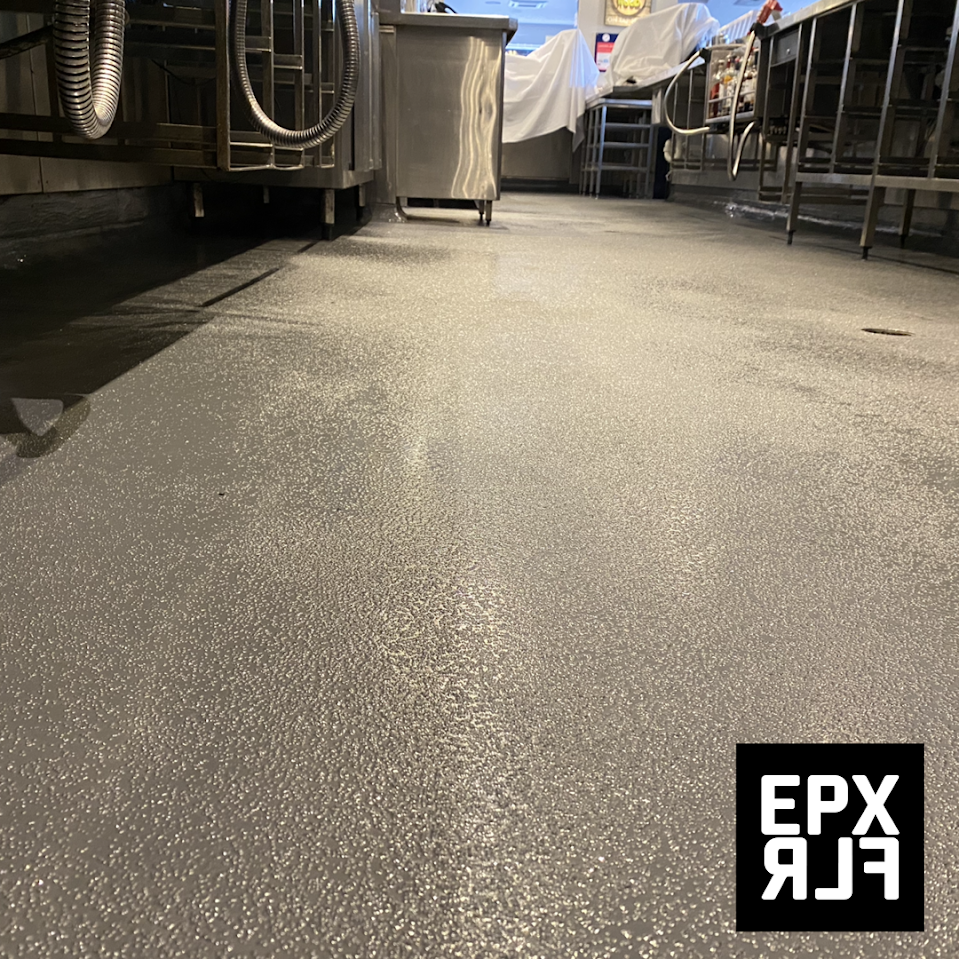If you’ve ever stepped into a winery or brewery and noticed the clean, glossy floor underfoot, chances are you were standing on epoxy. It’s not just there for looks — for wineries and breweries, epoxy flooring has quietly become the go-to surface right across Sydney and rural New South Wales. And for good reason.
With all the cleaning, spillage, foot traffic, forklifts, and chemical exposure that happen in these environments, a regular concrete floor just can’t keep up. That’s where epoxy comes in — durable, hygienic, seamless, and safe.
Let’s explore why epoxy flooring is the top choice for beverage producers, what it offers that other options don’t, and how it adapts to both urban breweries and remote country wineries alike.

Why Flooring is Critical in Breweries and Wineries
Beverage production environments are tough on floors. There’s constant moisture from cleaning and spillages. You’re dealing with acidic and alcoholic substances (like wine, beer, and cleaning chemicals). There’s heavy equipment being moved around — and hygiene regulations are strict. Here’s what your floor needs to handle:- Daily wet cleaning and sanitising
- Spills of wine, beer, caustics, and acids
- Forklifts, trolleys, pallets, kegs, barrels
- Wet boots, staff traffic, temperature changes
What Makes Epoxy Flooring Ideal?
Epoxy is a two-part system: a resin and a hardener. When applied to a prepared surface, it chemically cures into a solid, durable coating that bonds tightly to the concrete. It forms a seamless, impermeable layer that’s built to last in harsh environments. Here’s why it works so well in this industry:✅ Superior Chemical Resistance
Acidic wine spills? Caustic cleaners? No worries. Epoxy systems can be formulated to resist the full range of chemicals used in food and beverage production.✅ Non-Porous and Easy to Clean
Epoxy seals the concrete beneath it, leaving no cracks or pores for bacteria to hide. Smooth, seamless surfaces mean easier cleaning and better hygiene — with far less effort.✅ Slip Resistance Where You Need It
Anti-slip additives can be broadcast into the coating during application, providing a safe, grippy surface even when wet — ideal for tank rooms and washdown zones.✅ Heavy-Duty Strength
Epoxy floors are incredibly strong and can handle years of rolling barrels, forklifts, dropped kegs, and everything else that gets thrown at them.✅ Custom Appearance
From solid colours to flake finishes or even branded zones, epoxy offers visual flexibility — ideal for tasting rooms or public brewery tours.Sydney vs Rural NSW: Different Settings, Same Demands
In Sydney, breweries are often fitted into tight spaces: converted warehouses in Marrickville or taprooms in Alexandria. These sites often double as public venues, so the floor has to look good as well as perform. In rural NSW — say, a vineyard in Mudgee, Orange or the Hunter — you’re dealing with older buildings, large production sheds, and more extreme temperature swings. Harvest time often means 16-hour days with wet boots and muddy equipment. Both need a flooring solution that’s reliable, hygienic, and long-lasting. The advantage of epoxy? It can be tailored to suit both environments.- Urban breweries benefit from decorative finishes and fast-curing options to minimise downtime
- Country wineries benefit from thicker systems, thermal shock-resistant coatings, and textured finishes for grip and durability
Where Epoxy Flooring Works Best
In a winery or brewery, certain areas really benefit from epoxy coating. Here’s where it’s most commonly used:- Production floors – high traffic zones with tanks, hoses, and constant movement
- Fermentation & barrel rooms – where spills, cleaning agents, and hygiene matter
- Packaging lines – where smooth, cleanable floors reduce downtime
- Loading docks – need toughness and anti-slip properties
- Tasting rooms – decorative epoxy makes these spaces clean and welcoming
Things to Consider Before Installing Epoxy
If you’re considering an epoxy upgrade, here are a few important factors to keep in mind:Concrete Condition
Old slabs may need patching & grinding, or moisture mitigation before epoxy can go down. Surface prep is critical to avoid peeling later.Downtime
Depending on the system and the size of the area, most epoxy floors need 2–5 days of downtime. Schedule installs outside harvest season or major production pushes.Slip Resistance
Ask for the right balance — too smooth and it’s a slip hazard, too rough and it becomes hard to clean. A professional installer will help tailor this.Food Safety Compliance
Epoxy floors can help you meet hygiene regulations under NSW Food Authority and SafeWork NSW guidelines. Just make sure you’re using the right grade.A Real Example from the NSW Hills
We recently helped a winery in the Southern Highlands replace their old tiled floor in the fermentation room with a commercial-grade epoxy system. The tiles were lifting, grout was impossible to keep clean, and every washdown left standing puddles. After grinding back the surface, we installed a high-build to meet hygiene codes. The new floor is easier to clean, resists tartaric acid, and looks professional — perfect for their growing business.Final Thoughts: Is It Worth It?
Absolutely — epoxy flooring is a long-term investment that pays off in safety, efficiency, and cleanliness. It’s not just about looking good (though it does that too). For breweries and wineries in Sydney and regional NSW, epoxy flooring:- Reduces downtime for cleaning
- Improves workplace safety
- Meets compliance standards
- Adds years of life to the floor
- Enhances the professional appearance of your facility